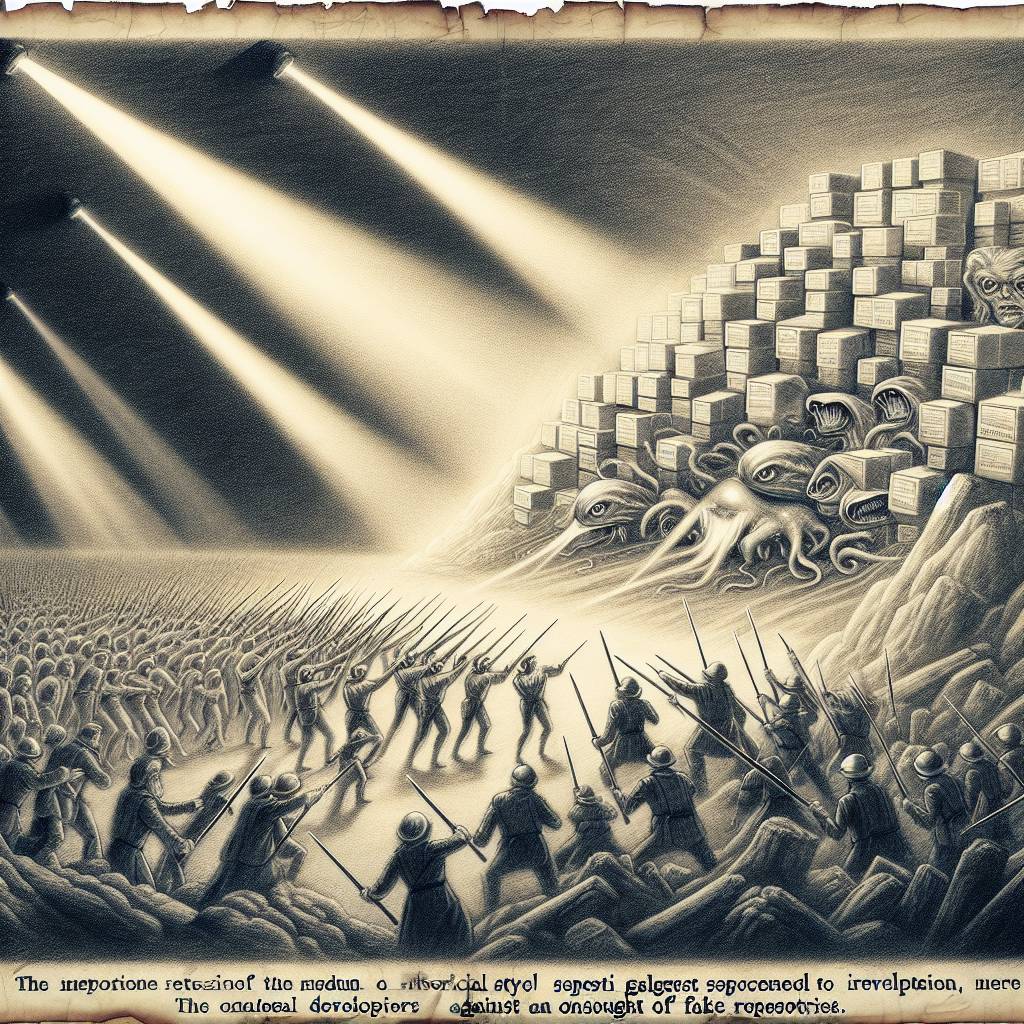GitHub’s Star Wars: The Battle Against Fake Repository Fame
GitHub is facing an issue with inauthentic stars, which inflate the popularity of scam repositories, drawing in unsuspecting users. A study found 4.5 million suspicious stars using a tool called StarScout. This fake fan club erodes trust on the platform, so users should look beyond stars when evaluating repositories.

Hot Take:
Looks like GitHub’s stars are going supernova, but not in a good way! While we all love a little attention, these fake stars are more like cosmic trickery, luring unsuspecting users into a galaxy of scams and malware. Beware of the false constellations, dear developers, or you might find yourself in a black hole of regret!
Key Points:
- GitHub stars are being artificially inflated by fake accounts to boost scam and malware repositories.
- The ‘StarScout’ tool analyzed 20TB of data to identify 4.5 million suspected fake stars.
- The study found 91% of the problematic repositories and 62% of suspicious accounts were deleted by October 2024.
- Fake star activity surged in 2024, affecting 15.8% of repositories with over 50 stars.
- Users should evaluate repositories beyond star count, examining activity, documentation, and code quality.
Starry-Eyed Deception
GitHub, the beloved platform for developers, is dealing with a starry dilemma. The “stars” which signify repository popularity are being used as a tool for deception. Much like likes on social media, these stars have been weaponized by scammers to promote malicious repositories. It’s a classic case of “all that glitters is not gold” in the digital realm, where shiny stars might just be traps set to snare the unsuspecting.
Scout’s Honor: StarScout’s Galactic Quest
Enter the hero of our story: StarScout, a tool developed by a team of researchers with a mission to unmask those imposter stars. By digging into the vast data archives of GHArchive, StarScout sifted through 20TB of data to expose the ruse. It turns out, 4.5 million stars were as fake as a three-dollar bill. This tool is like the cosmic detective, uncovering the hidden trails of bots and temporary accounts that coordinate these fraudulent activities.
Blast Off: A Million Stars Go Dark
After StarScout’s investigation, the results were stellar. The algorithm identified over 4 million suspicious stars, prompting GitHub to hit the delete button on 91% of these shady repositories. It’s a bit like a cosmic cleanup, where stars that once shone bright in the sky suddenly vanished without a trace. The researchers’ algorithm turned out to be as precise as a Swiss watch in this digital landscape.
Starry Surge of 2024
In 2024, the galaxy of GitHub stars saw a surge in inauthentic activity. With 15.8% of repositories flaunting over 50 stars being implicated in these schemes, it was a year of dubious popularity. It’s a reminder that sometimes, the brightest stars might just be the first to burn out, leaving behind a trail of confusion and potential harm to those who trusted their glow.
Beyond the Stars: A Call for Caution
For GitHub users, this issue serves as a wake-up call. The stars may have been the guiding light for many developers, but it’s time to look beyond them. Evaluating repository quality, activity, and contributions now takes precedence over the superficial star count. Much like a savvy space explorer, developers must navigate the platform with caution, ensuring they don’t fall into the trap of deceptive repositories.
In the vast universe of GitHub, the fake star problem is a stark reminder that not all that shines is safe. As GitHub continues its battle against these imposters, users must do their part by scrutinizing repositories more closely. After all, the real value lies not in the starry facade, but in the genuine quality of the code within.
In a galaxy not so far away, GitHub’s fight against fake stars continues. Stay vigilant, developers, and may the force of real stars guide you!
